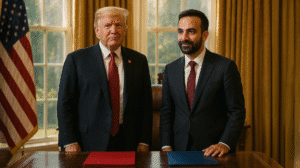Tension escalated this week between the Pentagon and the press when a coalition of major news organizations, including The New York Times, the Associated Press, and Newsmax, publicly refused to sign a new set of reporting rules introduced by the Department of Defense. Their rejection signals not just a conflict over access, but a deeper struggle over the role of independent journalism in holding the military accountable.
New Policy, Broad Pushback
The Pentagon’s updated guidelines would require journalists to formally agree to a framework that restricts access and reporting. Reporters would need escorts in large areas of the building and could lose credentials for publishing material not pre-approved by the Defense Department. The Pentagon maintains that the rules are meant to safeguard classified information and streamline interactions with the press.
However, news organizations argue the new rules go far beyond operational efficiency. According to reporting by Reuters, the policy could penalize journalists simply for asking questions or seeking information not cleared in advance. Critics say it frames independent reporting as a national security threat, effectively labeling ordinary journalistic practices as violations.
The Pentagon Press Association sharply criticized the changes, stating they would “gag Pentagon employees and threaten retaliation against reporters who seek out information that has not been preapproved.” More than 30 news organizations have refused to comply, citing First Amendment concerns and the risk of setting a dangerous precedent.
Journalists Leave the Building
As the policy deadline passed, numerous reporters turned in their badges and vacated their workspaces inside the Pentagon. The Associated Press reported that the usually busy press quarters had gone quiet. The act of leaving was not just symbolic, but also a rare show of unity among media outlets with very different editorial leanings.
Newsmax, known for its conservative slant, joined The New York Times and others in rejecting the terms. This broad-based resistance indicates that the core issue is not political but constitutional. Whether covering military budgets or policy failures, journalists argue that their ability to report freely from inside the Pentagon is essential to meaningful oversight.
Implications for Transparency and Accountability
With reporters physically removed from one of the country’s most powerful institutions, the public’s view into the military’s inner workings becomes more limited. Investigative journalism will likely suffer, and newsrooms may need to rely more on off-the-record sources, leaked documents, or after-the-fact disclosures rather than direct observation and in-person reporting.
Legal scholars suggest this policy could open the door to future restrictions across other government agencies. The vague language in the Pentagon’s guidelines could also support the use of laws like the Espionage Act against journalists in ways not previously considered.
The press historically plays a watchdog role, especially over institutions with massive budgets and global power. Without regular access to Pentagon officials and decision-makers, that role becomes harder to fulfill. As the Defense Department commands nearly one trillion dollars in annual funding, transparency is not a luxury, but a necessity.
A Legal Battle May Be Next
The issue is likely headed to court. Media organizations and the Pentagon Press Association have retained legal counsel to examine their options. Whether the courts will uphold press freedoms or defer to executive authority on national security grounds remains to be seen.
Until then, journalists are adjusting their strategies, and the Pentagon is operating in a new environment with far less direct scrutiny. What comes next will help define how freely the press can report on the U.S. military, and by extension, how much the public is allowed to know about the actions carried out in its name.














